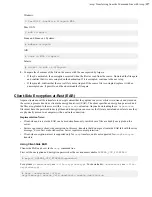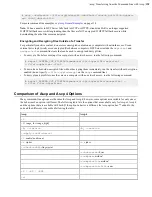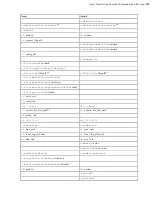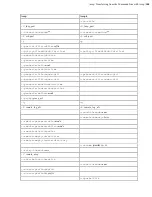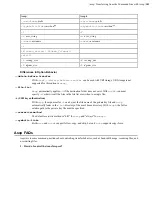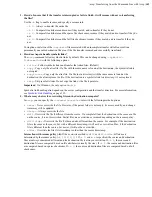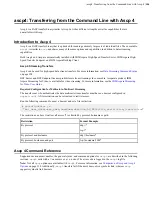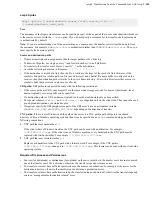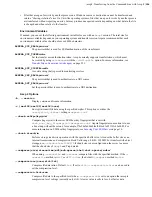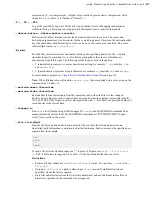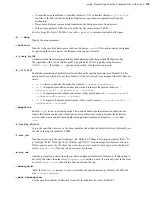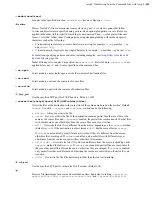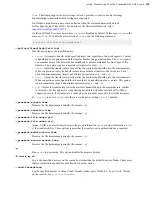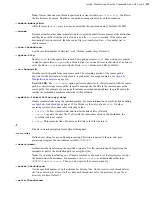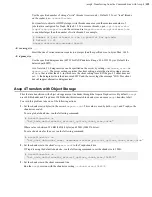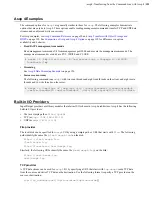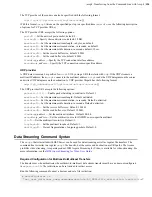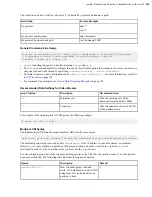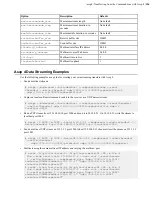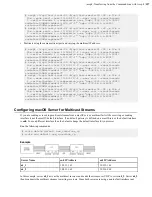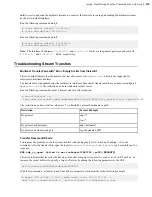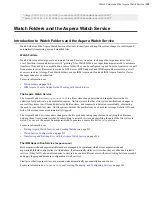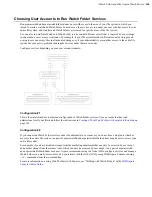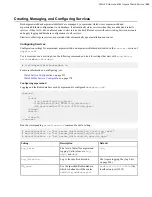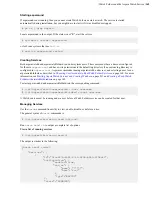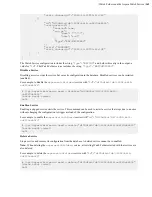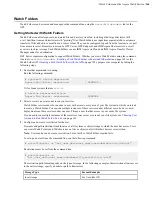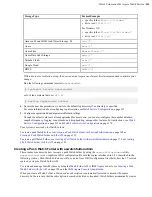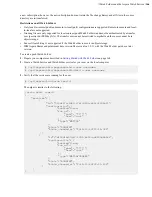
| ascp4: Transferring from the Command Line with Ascp 4 |
151
Note:
If more than one read thread is specified for a transfer that uses
--file-list
, the files in
the file list must be unique. Duplicates can produce unexpected results on the destination.
--remote-memory=
bytes
Allow the remote
ascp4
process to use no more than the specified memory. Default: 256 MB.
--resume
Resume a transfer rather than re-transferring the content if partial files are present at the destination
and they do not differ from the source file based on the
--compare
method. If the source and
destination files do not match, then the source file is re-transferred. See
-k
for another way to
enable resume.
--scan-threads=
num
Use the specified number of directory "scan" threads (sender only). Default: 2.
--sparse-file
Enable
ascp4
to write sparse files to disk. This option prevents
ascp4
from writing zero content
to disk for sparse files;
ascp4
writes a block to disk if even one bit is set in that block. If no bits are
set in the block,
ascp4
does not write the block (
ascp4
blocks are 64 KB by default).
--src-base=
prefix
Strip the specified prefix from each source path. The remaining portion of the source path is
kept intact at the destination. Available only in send mode. For usage examples, see
on page 116.
Use with URIs
: The
--src-base
option performs a character-to-character match with the source
path. For object storage source paths, the prefix must specify the URI in the same manner as the
source paths. For example, if a source path includes an embedded passphrase, the prefix must also
include the embedded passphrase otherwise it will not match.
--symbolic-links={follow|copy|skip}
Handle symbolic links using the specified method. For more information on symbolic link handling,
see
on page 132. On Windows, the only option is
skip
. On other
operating systems, this option takes following values:
•
follow
– Follow symbolic links and transfer the linked files. (Default)
•
copy
– Copy only the alias file. If a file with the same name exists on the destination, the
symbolic link is not copied.
•
skip
– Skip symbolic links. Do not copy the link or the file it points to.
-T
Disable in-transit encryption for maximum throughput.
-u
user_string
Define a user string for pre- and post-processing. This string is passed to the pre- and -post-
processing scripts as the environment variable
$USERSTR
.
--user=
username
Authenticate the transfer using the specified username. Use this option instead of specifying the
username as part of the destination path (as
user
@
host
:
file
).
Note:
If you are authenticating on a Windows machine as a domain user, the transfer server strips
the domain from the username. For example,
Administrator
is authenticated rather than
DOMAIN\Administrator
. Thus, you must specify the domain explicitly.
--worker-threads=
num
Use the specified number of worker threads for deleting files. On the receiver, each thread deletes
one file or directory at a time. On the sender, each thread checks for the presences of one file or
directory at a time. Default: 1.
--write-threads=
num

